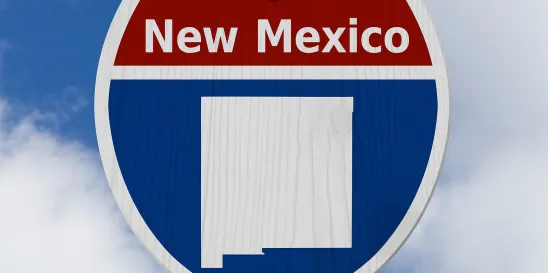You may have thought the movie Oppenheimer would be the only blockbuster involving Los Alamos, New Mexico this year. But now EPA has invoked its rarely used Residual Designation Authority under section 402 of the Clean Water Act based on the determination that discharges from Los Alamos municipal storm sewers (and some, but not others, in New Mexico) to “relatively permanent” tributaries of the Rio Grande River result in exceedances of the New Mexico Water Quality Standards for certain “pollutants” in the River so that they should be subject to the prohibitions/permitting requirements of section 402 even though those municipal storm sewer systems were sufficiently small that they would not otherwise be covered by the NPDES provisions of the Clean Water Act.
The designation, which will now be published in the Federal Register, subject to public comment, and then undoubtedly the subject of more Federal court litigation, was already challenged in the Tenth Circuit Court of Appeals. EPA asked for, and was granted, a voluntary remand of that challenge so that it could consider the effect of the Supreme Court's decision in Hawaii Wildlife Fund v. Maui on its exercise of its Residual Designation Authority in New Mexico.
How rare is the exercise of that authority? By my count it has been exercised three times. The first time was in the Commonwealth of Massachusetts. Perhaps not coincidentally, there are only three United States in which the State has not been authorized to implement the NPDES program. Two of those states are Massachusetts and New Mexico.
As in New Mexico, the exercise of Residual Designation Authority in Massachusetts was also precipitated by an NGO. But in Massachusetts the NGO sued anyway. That litigation is also stayed, by a Federal District Court Judge, while EPA Region 1 decides what to do about the designation that it has already made in Massachusetts.
Back to New Mexico, I said EPA asked for a remand so that it could consider the effect of the Maui decision on its intended exercise of its section 402 authority. It has now concluded Maui has no effect on that authority respecting the New Mexico discharges because the New Mexico discharges are direct to a Water of the United States, those "relatively permanent tributaries" I mentioned, so Maui's functional equivalence doctrine doesn't apply at all. Of course the conclusion that a “relatively permanent tributary” is a Water of the United States is a factual one based on EPA's interpretation of the Supreme Court's most recent interpretation of the Clean Water Act earlier this year in Sackett v. EPA.
That same rational isn't going to work in Massachusetts where EPA is planning to exercise its section 402 authority to require owners of hundreds of properties in the Charles River, Mystic River, and Neponset River watersheds to obtain NPDES permits relating to storm water runoff from those properties.
And then there is the fact that over half of our nominally United States are already challenging EPA's take on the Supreme Court's conclusion regarding the reach of the Clean Water Act, specifically EPA's most recent definition of Waters of the United States. It is quite possible the ultimate outcome of one or both of those cases will affect what amount of “relative permanence” is necessary to be a Water of the United States and that could have implications in New Mexico.
Whatever side of the longest running controversy in environmental law you might find yourself on, you can't argue with the proposition that, like Dr. Oppenheimer, EPA is relentlessly pursuing its Clean Water Act objectives in the face of considerable challenges.




 />i
/>i
